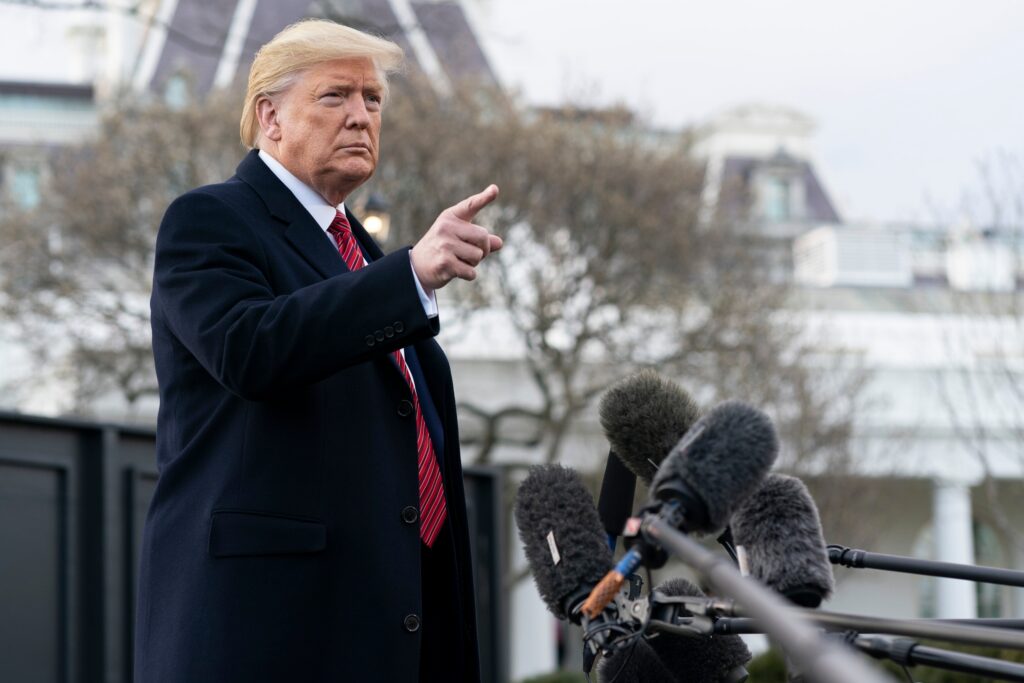President Donald Trump’s return to the White House has already sent shockwaves through America’s political, economic, and social landscape. In just 100 days, his administration has signed sweeping executive orders, overhauled federal departments, sparked legal challenges, and ignited protests across the country.
From slashing federal programs to redefining immigration enforcement, Trump’s presidency has entered with intensity not seen in modern history. While his supporters praise his fast-paced decision-making, critics warn that democratic institutions are being tested like never before.
Executive Power and Legal Tensions Rise
Trump’s second term has been marked by growing executive authority. In a statement that caused nationwide concern, Vice President JD Vance said, “Judges can’t command the executive’s legitimate power.” Legal experts quickly condemned the remarks as a threat to judicial independence.
Federal courts pushed back by blocking several presidential orders. Some involved immigration raids that lacked proper legal procedures. Although the administration pledged to follow court rulings, delays in enforcement raised concerns.
“The constitutional balance is under pressure,” said one federal judge, speaking anonymously due to political tensions.
Elon Musk and the Chainsaw Budget Cuts
In a highly publicized event, entrepreneur Elon Musk accepted a golden chainsaw from Argentinian President Javier Milei, symbolizing the start of aggressive government cuts. Musk then led efforts to dismantle entire federal departments, including the Department of Education and USAID.
Buildings emptied, jobs vanished, and essential services were slashed. Although the aim was to reduce federal spending, the cuts raised alarms about national stability.
Protests broke out across cities, with citizens demanding protection for programs like Social Security and veterans’ care. Economists warned of deep long-term consequences.
Markets Plunge Amid Tariff Announcements
Economic uncertainty grew when Trump introduced steep new tariffs during a Rose Garden speech. Expecting minor policy updates, investors instead watched the stock market tumble.
The S&P 500 dropped sharply. Wall Street faced billions in losses within hours.
Unemployment rose. Mortgage rates climbed. Consumer confidence faltered.
“This is unlike anything we’ve seen in decades,” said a Federal Reserve analyst. Still, Trump’s base remains hopeful that American manufacturing will eventually recover under the new trade rules.
Immigration Blitz and Human Impact
Photos of detained migrants in El Salvador sparked global outrage. Many had been deported from the U.S. under new fast-track immigration policies.
One mother, Myrelis Casique Lopez, identified her son in a viral image showing detainees in shackles.
The administration defended the crackdowns as necessary for national security. However, rights groups said lawful residents were being deported without due process.
Border crossings dropped, but civil rights advocates argued the cost was too high.
Universities and Media in the Crosshairs
Trump’s administration froze billions in research funding for U.S. universities. Harvard University responded with legal action, accusing the government of political interference.
Columbia and other institutions quickly revised their campus policies to avoid further conflict. Media organizations also faced pressure. One major network settled a defamation lawsuit, paying millions to Trump’s foundation.
“This is a coordinated attempt to silence dissent,” said a former network executive.
Law firms and corporate boards faced pressure to align with administration policies, or risk losing contracts.
Diversity Programs Dismantled Nationwide
In a speech at the White House, Trump linked a recent transportation tragedy to diversity hiring. Though lacking evidence, he issued a broad order to eliminate all federal DEI (Diversity, Equity, and Inclusion) programs.
Corporations like Meta and Goldman Sachs scaled back their internal diversity initiatives.
Memorials to underrepresented groups disappeared from government websites. Civil rights historians warned of historical erasure.
Even military tributes were altered, removing mentions of minority service members.
Trump’s first 100 days have set a fast-moving, controversial tone. His policies have redefined executive power and sparked fierce national debates.
Republican lawmakers are working quickly to pass legislation that will solidify Trump’s changes before the next election. Legal challenges are mounting. And the 2026 midterms loom as a potential turning point.
Some view these actions as a revolution. Others call them a political hurricane. The only certainty is that America is facing deep and lasting change.


